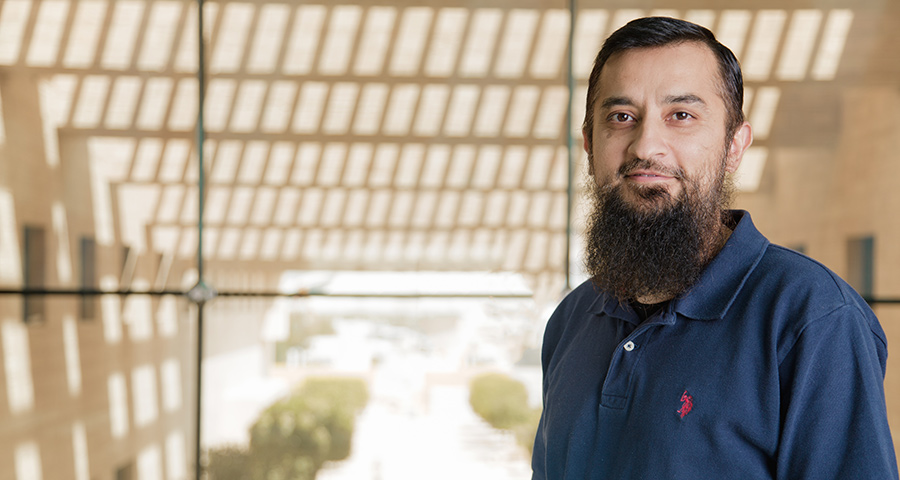
QNRF shares outcomes of education projects
CMU-Q News editor’s note: Saquib Razak, associate teaching professor of computer science at CMU-Q, participated in QNRF’s Research Outcome Seminar in March 2017. Razak is the lead principal investigator of Alice Middle East, an NPRP-funded project to localize the Alice educational software for a Qatar audience.
In Gulf Times, March 3, 2017
Policy-makers, researchers, teachers, and representatives from local educational organisations came together recently at a Research Outcome Seminar (ROS) hosted by Qatar National Research Fund (QNRF) under the theme ‘Education for the Future of Qatar’.
More than 80 participants discussed and shared knowledge on advances made by researchers funded through QNRF in the field of education.
Dr Michael Reksulak, pillar director, social sciences, arts and humanities, QNRF, emphasised the importance of the discipline to realisation of Qatar’s goals. “This seminar is part of our continuing conversation with the Ministry of Education and Higher Education about how to incorporate lessons from research into Qatar’s classrooms. The ultimate gold-standard by which successful researchers often want to be measured is the positive impact they have on society.”
The ROS series is an initiative designed to provide researchers with a public platform to share the outcomes of cutting-edge research activity supported and enabled by QNRF funding, as well as being a forum for enhancing synergy and exchanging knowledge.
Dr Abdellahi Hussein, programme manager, education, QNRF, gave an overview of the grants provided to researchers in the field of education. He discussed the outcomes generated by their projects, and highlighted the need to increase the level of collaborative research amongst institutions in Qatar.
The event began with presentations on four completed QNRF-funded projects, as Dr Hayat Heji of the Al-Noor Institute for the Blind discussed tools for helping Arabic-speaking pre-school students who are blind or visually impaired; followed by Dr Zohreh Eslami, of Texas A&M University at Qatar, who highlighted techniques for improving reading skills among middle-school science students.
Dr Saquib Razak, from Carnegie Mellon University in Qatar, spoke of his experience of ‘Alice Middle East’, software that guides students through a 3D interactive world. The presentations concluded with Dr Ziad Said, of the College of the North Atlantic-Qatar, who highlighted the attitude of students towards science.
The panel session provided an opportunity for education researchers and policy-makers to share a platform and discuss ways in which the gap between research theory and practice can be bridged. Developing homegrown research studies, rather than importing solutions, was one of the suggestions made as panellists underscored the need for closer collaboration and dialogue between the Ministry of Education and Higher Education and Qatar’s research community.
